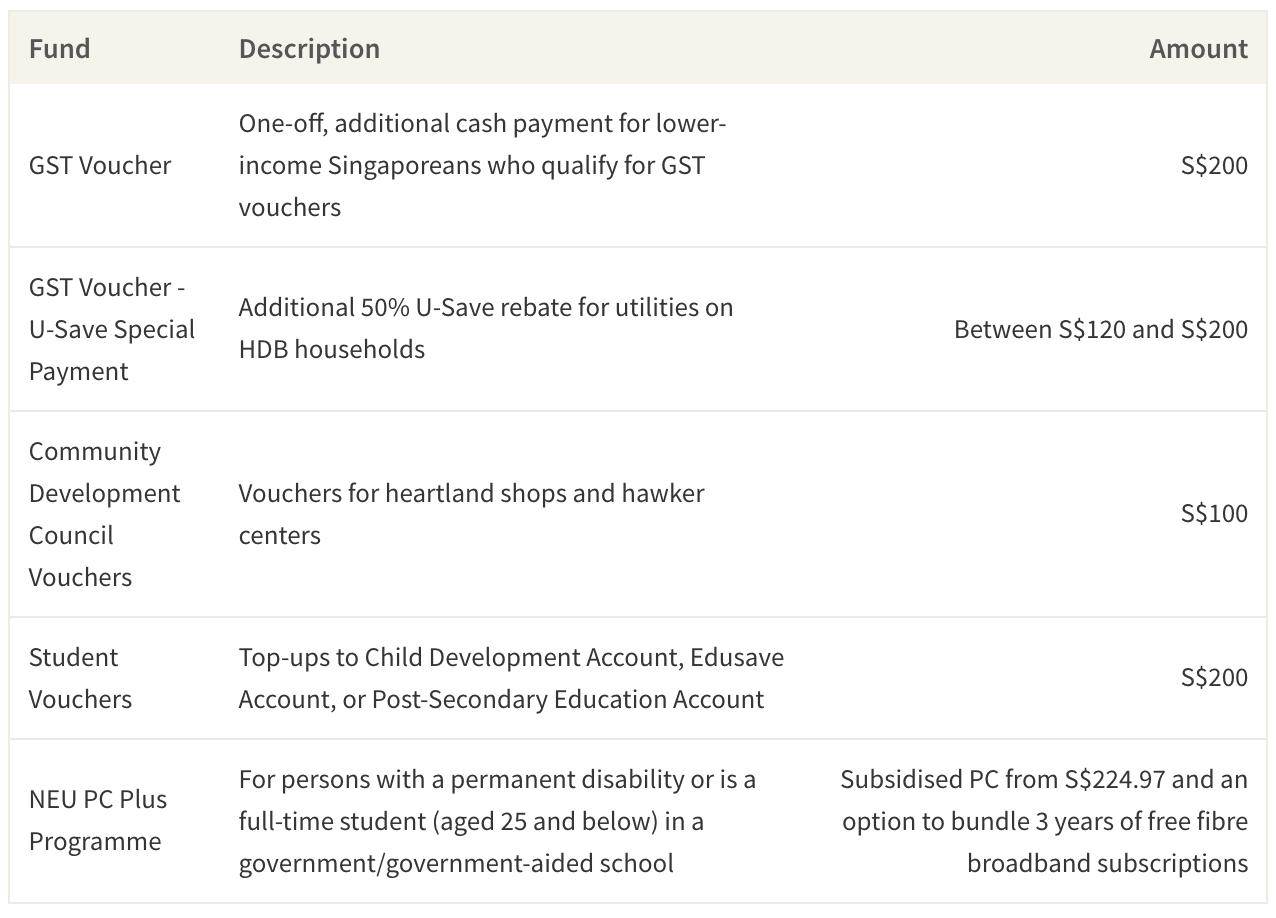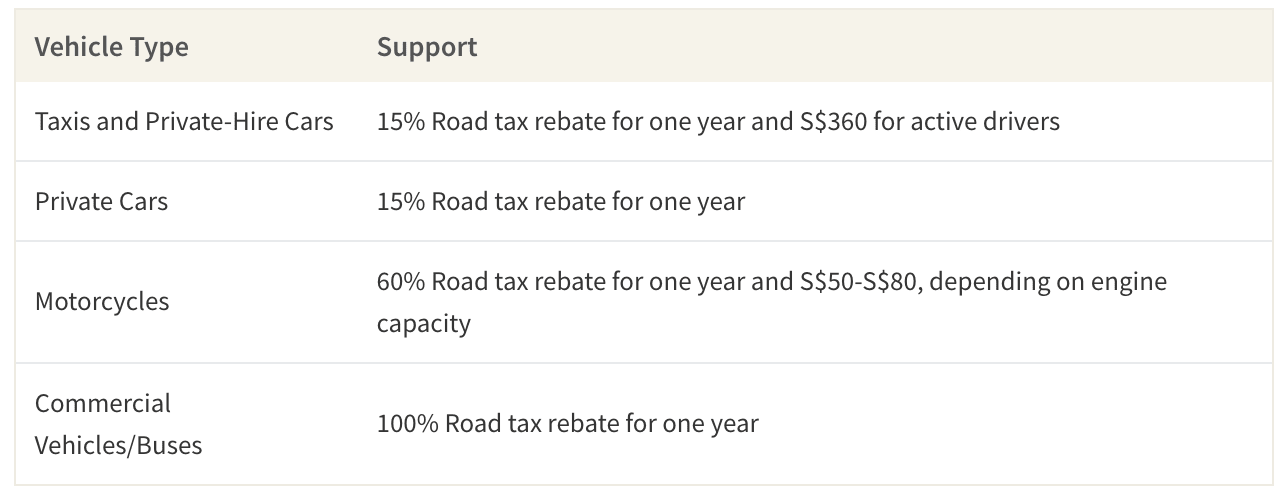How Much Money Will The 2021 Budget Put in Your Pocket?
Singapore's 2021 Financial Budget was released on February 16th. While previous budgets focused on growing the economy and building a united Singapore, this year continues and expands support for those struggling from the Covid-19 pandemic. Moreover, the budget also sets into place a framework for growth beyond the pandemic. For instance, the budget contains a S$900 million plan for household relief to help those who were laid off, furloughed, or experienced a cut in working hours throughout 2020. With cash grants, tax rebates and loan policies, the government's generous budget might put money into your pocket. However, how much will you actually receive?
Vouchers and Cash Grants Can Give You Hundreds To Start the Year
The 2021 budget contains several vouchers and grants for those who may be struggling. For example, students 21 and younger will get S$200 into their Child Development Account, Edusave Account, or Post-Secondary Education Account. Moreover, if your annual income is less than S$13,000 per year, the government will send you two GST vouchers (worth S$200 in June and S$300 in August). On the other hand, if you earn between S$13,000 and S$21,000, you will get up to S$350 with the two vouchers. The first will be paid in June at S$200, and the second voucher of S$150 will be paid in August.
Support for Individuals and Low- to Medium-Income Individuals

To supplement these vouchers, the government is also giving HDB residents additional grants on April 2021, July 2021, October 2021, and January 2022. If you live in a 1- and 2-room flat, you will receive S$100 on each payment date. Those living in a 3-room, 4-room, and 5-room flat will get S$90, S$80, and S$70 respectively. If you live in an executive or multi-generation housing, you will be entitled to get S$60. Households will also get S$100 in Community Development Council vouchers, which are accepted at a variety of stores. Finally, HDB residents can qualify for 2 years of subsidized fibre broadband and a smartphone or tablet under the Home Access Programme. So, depending on your annual income, these grants could put S$690 to S$995 in your pocket.
Tax Rebates and Deductions Can Make a Difference This Year
The 2021 budget will also feature tax rebates and deductions. For instance, if you are living in an HDB flat you could get between 1.5 months and 3.5 months tax rebate on your Service and Conservancy (S&CC) charges. With this rebate, you could save between S$120-S$150 this year on your S&CC tax. Additionally, some councils will even reduce the monthly S&CC rates for up to half of the normal charge for the duration of 2021.
Another tax rebate listed in the budget is for those working from home. The IRAS might give you a rebate of up to 75% of money spent towards transforming your home office into a workspace. This is to help ease the burden of adjusting to a new working dynamic. However, there is a cap of S$300,000 during the three-year period which will apply.
Loans and Loan Forgiveness Might Give You Additional Funds
With extra time at home this year, you may have considered opening your own business and breaking from the traditional 9 to 5 schedule. If you have a business idea, the 2021 budget could provide you with tangible resources to help you jump start your project. For example, the Enterprise Financing Scheme's SME Working Capital loans and Venture Debt Program could lend you up to S$1 million and S$8 million respectively. Besides taking out a small business loan, these government loans might get your idea off the ground by providing initial funding and collaboration networks.
In addition, the 2021 Budget allows for loan forgiveness to students, who will have their repayment and interest charges suspended until May 31st, 2021. While now may not be the best time to take out a loan, the government is promoting lower interest rates to promote long-term growth.
You May Get Money but Prepare for Some Price Increases
With the vouchers, grants, and rebates at play, you may receive more money in your pocket than from previous budgets. However, you should still expect to see some price hikes in daily expenses. This is because the government is looking to find ways to combat a record deficit of 13.9% of Singapore's GDP and promote its Singapore Green Plan by 2030.
Support For Affected Motorists Using Petrol

To counteract the growing climate crisis, Singapore's budget will raise the petrol duty charge by 15 cents per litre for premium petrol. The petrol rate for intermediate petrol will rise by 10 cents. This 23% increase in prices, along with the drop in registration fees (from S$5,000 to S$0) for electric vehicles, is meant to encourage a move towards electric cars. That being said, there will be tax rebates of 15%-100% for taxis, private cars, motorcycles and commercial vehicles.
How Much in Vouchers, Grants and Rebates Will I Receive?
The amount of money you'll receive from the Household Support Package is predetermined by your 2020 annual income. However, that doesn't mean that you won't be able to find additional support this year if your income takes you out of the running for most forms of government assistance. When you do start saving money, moreover, you may want to consider investing in a fixed deposit or tucking some money away in a high-yield savings account to grow your savings in the long-run.

